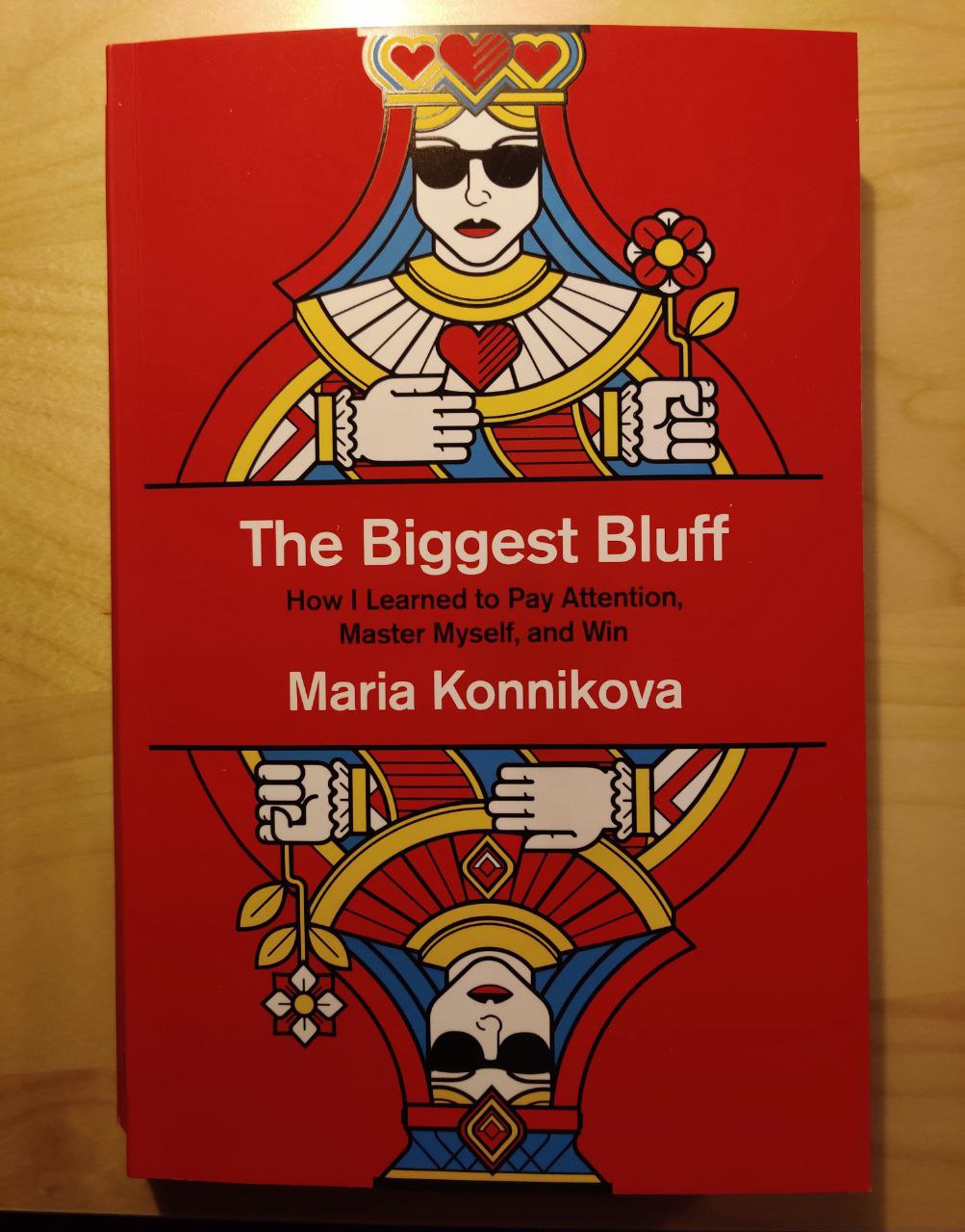The Biggest Bluff: How I Learned to Pay Attention, Master Myself, and Win by Maria Konnikova

A New York Times journalist with a PhD in psychology decides to learn poker in a year, win a tournament, and write a book about it. It takes slightly more than a year, but in general, the plan works out.
The resulting book is not a poker book. Sure, it introduces some rules of that game and has a glossary of terms, but poker is never more than a model for learning in life. It just happened to be the most suitable one from the author’s point of view: the right combination of luck and skill, the right degree of uncertainty, the right stakes.
Thus, “The Biggest Bluff” is not a manual on poker or on winning a tournament. Konnikova’s circumstances for learning in a couple of years are too special for it to be: she doesn’t have to care about money and she uses her journalistic and doctoral credentials to get the big names to mentor her. But the experiment is still interesting for the general public.
Part diary, part literature overview, the book goes through ups and downs of a learning process and the differences between theory and practice. It’s easy for a PhD in psychology to talk all day about biases and impulses in theory, but when it comes to practice, Konnikova falls into the same traps as her past research subjects. It’s up to the reader to decide whether that’s discouraging or uplifting, but in any case, with enough deliberate practice the author becomes a bit better at decision-making. You usually can’t force certain situations in life to train your grit or something, but poker is always available.
Used in the right way, experience can be a powerful ally in helping to understand probabilistic scenarios. The experience just can’t be a one-off, haphazard event. It has to be a systematic learning process—much like the environment you encounter at the table. And the correct systematic learning process can help you unravel chance from everything else in a way that no amount of cramming numbers or studying theory ever will.
“When things go wrong, other people see it as unfairness that’s always surrounding them,” he tells me. They take it personally. They don’t know how to lose, how to learn from losing. They look for something or someone to blame. They don’t step back to analyze their own decisions, their own play, where thy may have gone wrong themselves. “It’s a really big handicap in life to think that way.”
★★★☆☆
(354 pages, ISBN:9780008270865, Worldcat, Open Library)
There is no comments section, but if you'd like to give feedback or ask questions about this post, please contact me.